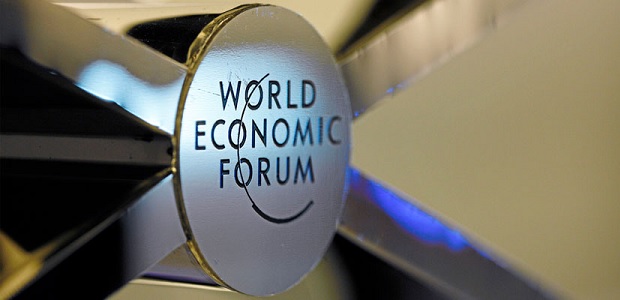
World Economic Forum and a community of over 40 central banks, international organizations, academic researchers and financial institutions have created a framework to help central banks evaluate, design and potentially deploy Central Bank Digital Currency (CBDC).
National Bank of Cambodia has already piloted a quasi-form of CBDC for its national payments system; Central Bank of Uruguay and the Bank of Thailand are applying the toolkit to its CBDC evaluation process; People’s Bank of China, Eastern Caribbean Central Bank are also early movers
· Read the report here, and for more information visit https://www.weforum.org/projects/central-banks-age-of-blockchain
The past six months have been a wake-up call for some central bank policy-makers. Central bank digital currency (CBDC) has risen to prominence as a potential solution to multiple challenges such as financial inclusion and payment‑system efficiency. But due in part to the market-moving nature of central bank announcements, the majority of research and experimentation is done independently, behind closed doors.
For the first time, the World Economic Forum gathered insights from central bank researchers, global policy-makers, international organizations and experts from over 40 institutions to create the CBDC Policy‑Maker Toolkit. Blockchain and academic experts from around the world also contributed to the design and content to help policy‑makers within central banks confidently evaluate whether CBDC is the right fit for their economy and guide them through the evaluation, design and deployment process.
“Given the critical roles central banks play in the global economy, any central bank digital currency implementation, including potentially with blockchain technology, will have a profound impact domestically and internationally,” said Sheila Warren, Head of Blockchain and Distributed Ledger Technology at the World Economic Forum. “It is imperative that central banks proceed cautiously, with a rigorous analysis of the opportunities and challenges posed.”
Over the past year, the Forum’s Blockchain and Distributed Ledger Technology team captured lessons from current research and pilot projects, while acknowledging privacy and anonymization, to avoid potentially harmful market signalling. The framework is intended to help accelerate critical and rigorous analysis of CBDC and lay common groundwork for central banks to support stable, efficient and inclusive global systems that might include CBDC.
“We worked with almost a dozen central banks as well as prominent economists and financial industry leaders to create a common approach for evaluating and designing CBDC around the world,” said Ashley Lannquist, Project Lead, at the World Economic Forum. “The toolkit is the first of its kind to provide a concise summary of the key issues for policy-makers considering general-purpose or wholesale CBDC.”
The CBDC Policy‑Maker Toolkit provides high‑level guidance and information for retail, wholesale, cross‑border and private-sector issued “hybrid CBDC” as well as for large, small, emerging and developed countries. It guides users through the CBDC evaluation process, with descriptions for each stage of the process. Worksheets and information guides with research references accompany and correspond to each section. These documents serve as process checks and references to the decision‑making process. It also evaluates the role of distributed ledger technology within CBDC implementation and highlights important governance, user-data privacy, financial inclusion and security issues.
“The Bank of Thailand has made good progress on a wholesale CBDC project, called Project Inthanon,” said Dr. Veerathai Santiprabhob, Governor, Bank of Thailand. “From our experience, we need to identify tradeoffs between benefits from the use cases and their associated risks across different dimensions. This is where the Policymaker Toolkit could usefully provide an actionable framework for CBDC deployment.”
“We will pilot the new toolkit developed by the World Economic Forum, said Mr. al Maraj, Governor, Central Bank of Bahrain. “We hope that it will be an opportunity to learn, grow and to adapt to the changes in the Fourth Industrial Revolution.”
“The toolkit can serve as a springboard as central banks progress with their CBDC investigation and development,” Warren said. “The intricacies of implementing CBDC are complex and the implications are wide‑reaching. As a result, policy‑makers may find themselves in uncharted waters when attempting to evaluate the potential benefits and trade‑offs.”
The National Bank of Cambodia has developed the first full-scale deployment of a quasi-form of CBDC as part of Project Bakong, which started as a pilot test with a live and confined environment on 18 July 2019 and plans to go live early 2020. A specific problem was identified. It needed to connect a fragmented payments economy, dominated by heavy cash usage and PSPs, with commercial banks, merchants, and the country’s largely underbanked population to reduce payments frictions and increase financial inclusion. Developing a blockchain-based payment system was one solution to this challenge.
While cases like Cambodia, Uruguay, Eastern Caribbean Central Bank and the People’s Bank of China show that some countries are accelerating, many others are still researching and have not decided whether or how to issue. The toolkit provides a guide for these countries to make progress quickly and analyse if CBDC is right for them.
Banking 4.0 – „how was the experience for you”
„To be honest I think that Sinaia, your conference, is much better then Davos.”
Many more interesting quotes in the video below: